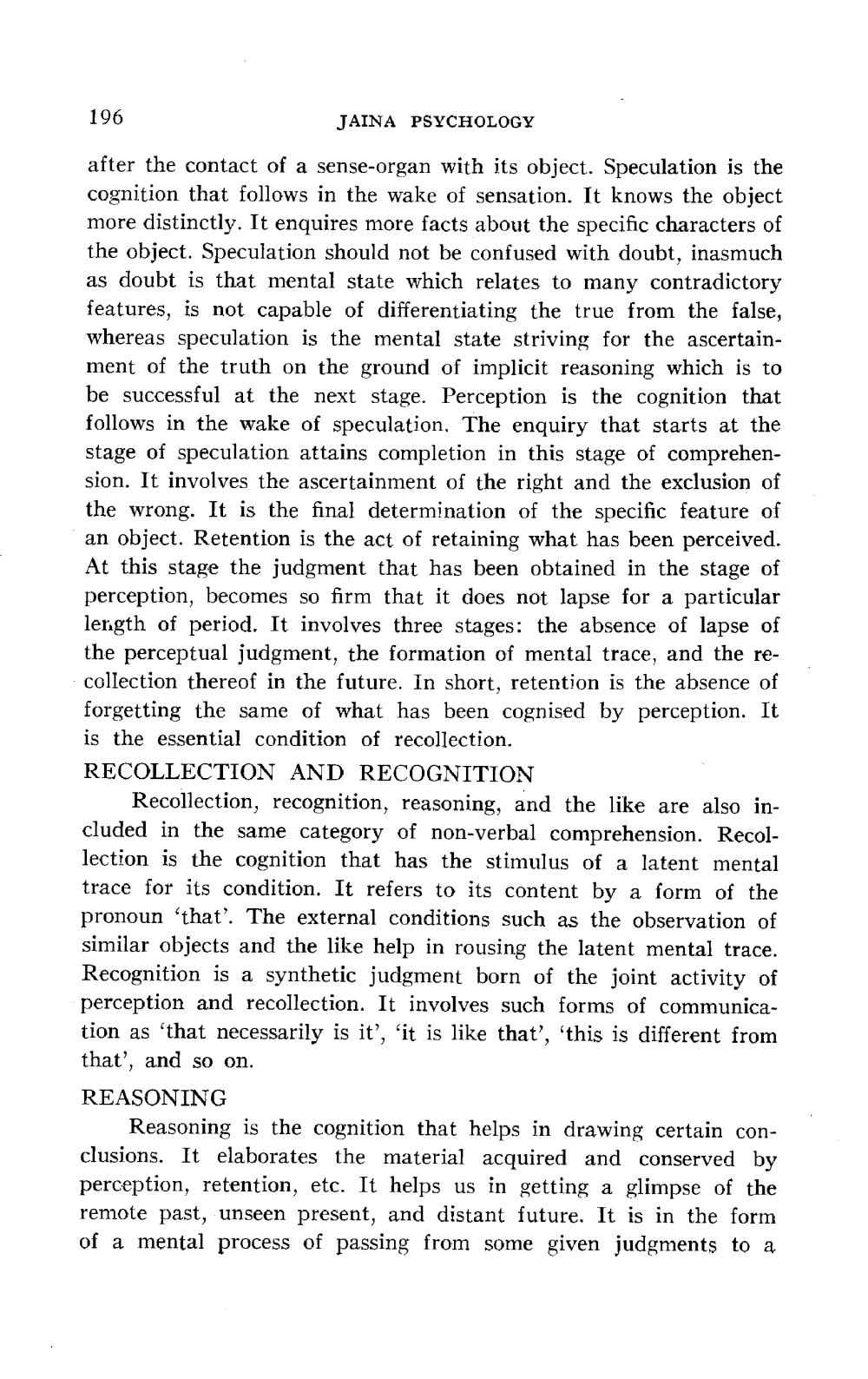________________
196
JAINA PSYCHOLOGY
after the contact of a sense-organ with its object. Speculation is the cognition that follows in the wake of sensation. It knows the object more distinctly. It enquires more facts about the specific characters of the object. Speculation should not be confused with doubt, inasmuch as doubt is that mental state which relates to many contradictory features, is not capable of differentiating the true from the false, whereas speculation is the mental state striving for the ascertainment of the truth on the ground of implicit reasoning which is to be successful at the next stage. Perception is the cognition that follows in the wake of speculation. The enquiry that starts at the stage of speculation attains completion in this stage of comprehension. It involves the ascertainment of the right and the exclusion of the wrong. It is the final determination of the specific feature of an object. Retention is the act of retaining what has been perceived. At this stage the judgment that has been obtained in the stage of perception, becomes so firm that it does not lapse for a particular length of period. It involves three stages: the absence of lapse of the perceptual judgment, the formation of mental trace, and the recollection thereof in the future. In short, retention is the absence of forgetting the same of what has been cognised by perception. I is the essential condition of recollection. RECOLLECTION AND RECOGNITION
Recollection, recognition, reasoning, and the like are also included in the same category of non-verbal comprehension. Recollection is the cognition that has the stimulus of a latent mental trace for its condition. It refers to its content by a form of the pronoun 'that. The external conditions such as the observation of similar objects and the like help in rousing the latent mental trace. Recognition is a synthetic judgment born of the joint activity of perception and recollection. It involves such forms of communication as 'that necessarily is it', 'it is like that', 'this is different from that', and so on. REASONING
Reasoning is the cognition that helps in drawing certain conclusions. It elaborates the material acquired and conserved by perception, retention, etc. It helps us in getting a glimpse of the remote past, unseen present, and distant future. It is in the form of a mental process of passing from some given judgments to a




